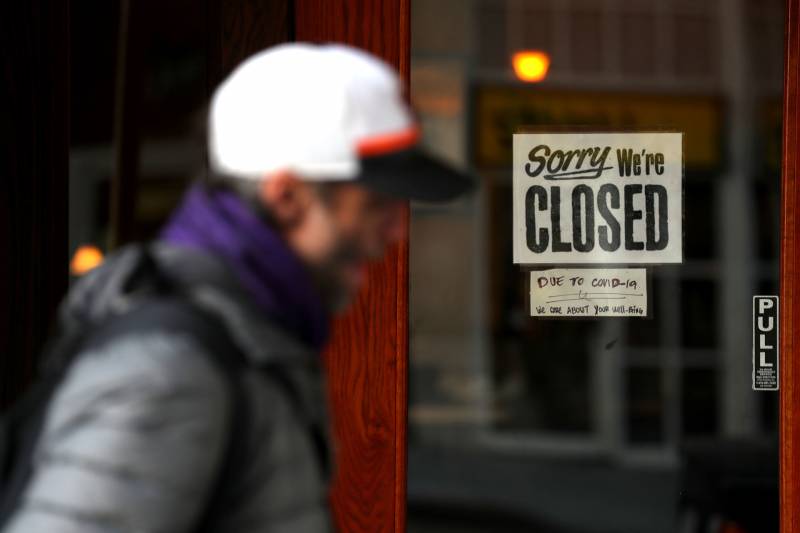Public health officials from five Bay Area counties are moving faster than the state requires to impose stay-at-home orders that they hope will contain the surging coronavirus.
5 Bay Area Counties Implement Strict New Stay-at-Home Orders Ahead of Schedule

The counties of San Francisco, Santa Clara, Alameda, Contra Costa and Marin, plus the city of Berkeley, have issued a new health order that will shut many indoor businesses, require others to reduce capacity to 20%, and close indoor and outdoor dining except for takeout and delivery. The orders in all the counties except Alameda and Marin take effect Dec. 6. Alameda's order goes into effect on Dec. 7 and Marin's on Dec. 8.
The restrictions will remain in force until Jan. 4, 2021.
Bars, museums and personal care services such as nail and hair salons are among the businesses that will have to suspend services altogether. Also required to shut down are movie theaters, playgrounds and museums. Hotels and lodging will operate only for critical infrastructure support. Religious services will only be permitted outdoors.
In addition, the order prohibits gatherings between people from different households.
The state's threshold for the mandatory imposition of these restrictions is an 85% occupancy rate for ICU beds in hospitals for an entire region. The Bay Area as a whole has not yet risen above that level, but Contra Costa County's health officer, Dr. Chris Farnitano, says the counties had to act to prevent hospitals and ICUs from becoming overwhelmed.
"The dark COVID winter that we feared would come has arrived in the Bay Area. I and other health officers don't think we can wait for the state's restrictions to go into effect later this month. We must act swiftly to save as many lives as we can. This is an emergency," he said.
Public health officials have warned that the toll from Thanksgiving gatherings could start to swamp hospitals by Christmas. Dr. Tomás Aragón, health officer for San Francisco, said new COVID-19 cases in the Bay Area have quadrupled in the past month. For every case that medical officials can count, there are 6 to 10 cases that go undetected, he said.
"This virus is relentless and unforgiving. We have no choice if we want to take care of communities and our loved ones in our hospitals," Aragón said. "Unlike previous surges, every hospital in California is under stress. There is no place to transfer people if we run out of beds."
Santa Clara's public health officer, Dr. Sara Cody, said the average percentage of ICU occupied beds in her county's hospitals has tripled in the past month.
The public health officials advised people to step up any precautionary measures they're taking to avoid spreading the coronavirus to friends and family.
"Until we get through this wave, you should not meet in person with anyone you don’t live with," said Dr. Lisa Hernandez, health officer for the city of Berkeley. "Even in a small group and even outdoors with precautions. If you have a social bubble, it is now popped."
Dr. Matt Willis, public health officer for Marin County, implored those who have flexibility to stay home to protect people who can't.
"One of the things we’ve learned about this virus is that it takes advantage of inequities," Willis said. "Many of our residents don’t have the freedoms to avoid risk of exposure, especially our essential workers and those who have been on the front lines since the start. Most of us do have freedom to choose and with that comes responsibility to limit our risk so that we’re protecting our most precious resources: our community, our health care system and one another."
